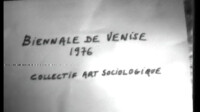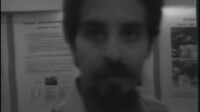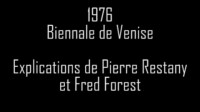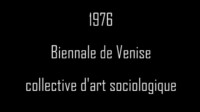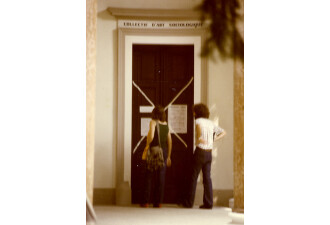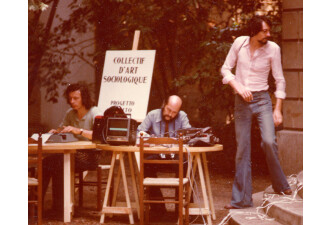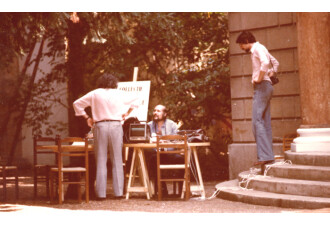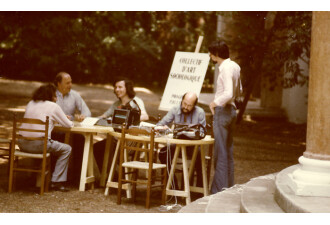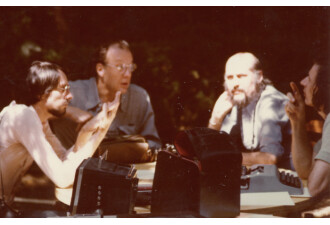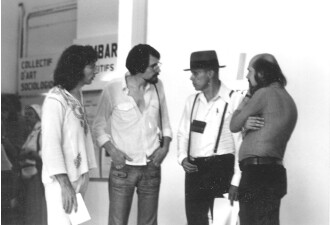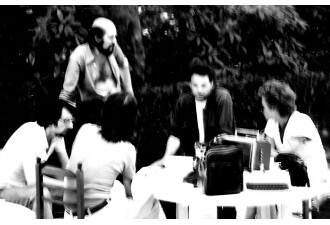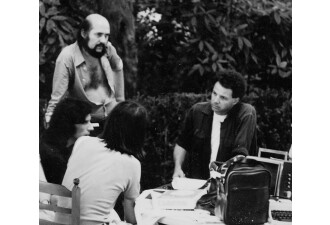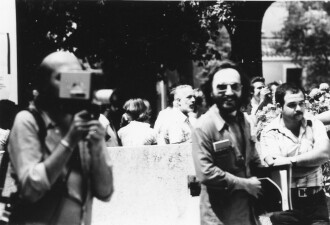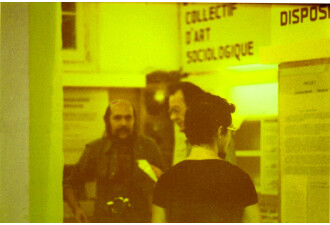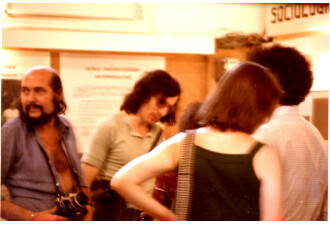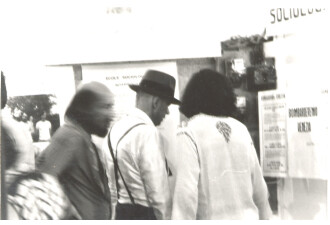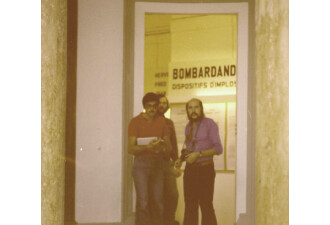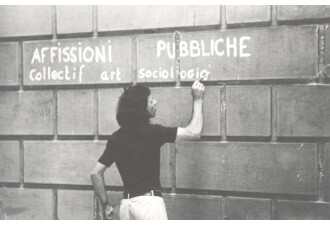Biennale de Venise
The project drawn up by the Collectif d'art sociologique for the Venice Biennale (Fischer, Forest, Thénot) is a highly original one, as it is the first time that a project has been conceived and implemented for the whole city.
1976 BIENNALE DE VENISE
The project being developed by the Collectif d'art sociologique for the Venice Biennale (Fischer, Forest, Thénot) is a highly original one, since it is the first time that a project has been conceived and implemented for the whole city.
The French pavilion in the gardens of the Giardini will serve only as a place for directing operations, documentation and information, and for contact with journalists and visitors. Fortunately, the bombardment that the collective is putting in place is nothing more than a bombardment of images on the façades of historic monuments. These bombardments are carried out every day at nightfall, using powerful spotlights from two vaporettos that sail on the Grand Canal in the opposite direction. The purpose of their navigation is to symbolically subject the city's historic façades to the pressure of the modern world. In fact, the images that cover them are photos of the industrial suburbs, and the ecological question that the Collectif wants to ask is whether this historic city, which is slowly sinking, will be able to resist its slow descent into the water for much longer?
In this sense, their aim is not just purely aesthetic, but also political and sociological. This is perhaps also the reason why this project could not be carried out in the end, due to a lack of the necessary resources, to which those in charge all turned a deaf ear... Especially as the action set up by the Collectif d'art sociologique was accompanied by an ongoing campaign using the press and posters calling for public participation on the issues raised.
Failing to implement its action, the Collectif will be organising daily debates in front of the Pavillon Français with a large number of artists on the conditions enjoyed by each of them in their own countries.
- https://journals.openedition.org/marges/1262
- https://www.facebook.com/100063538899464/videos/1730274217225717/
LONG BIOGRAPHY OF FRED FOREST
Fred Forest has a special place in contemporary art. Both by his personality and by his pioneering practices which mark his work. He is mainly known today for having used one by one most of the communication media that have appeared over the last fifty years. He is co-founder of three artistic movements: those of sociological art, the aesthetics of communication and ethics in art.
He represented France at the 12th São Paulo Biennale (Communication Prize) in 1973, at the 37th Venice Biennale in 1976 and at Documenta 6 in Kassel in 1977.
EXHIBITION AT THE CENTRE POMPIDOU FROM JANUARY 24 TO OCTOBER 14, 2024

